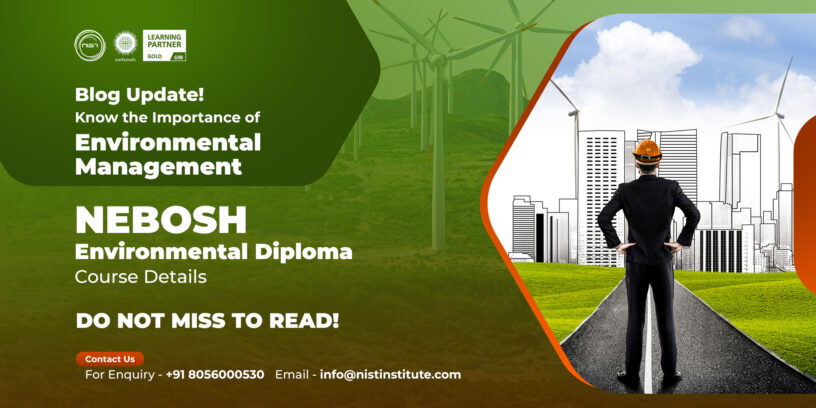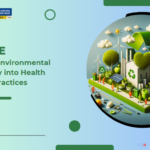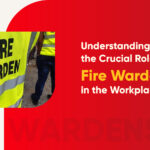It is just as crucial to safeguarding our environment as it is to protect ourselves. Pollution has put our planet in jeopardy. Pollutants from industry play a significant influence in contaminating and hurting the environment. Pollutants from industries and factories continue to degrade our environment, resulting in air pollution, water pollution, land pollution, and soil erosion, etc.
Believe it or not, according to a World Health Organization study, climate change, or global warming, was responsible for 3% of diarrhea, 3% of malaria, and 3.8 percent of dengue fever deaths worldwide in 2004. Furthermore, global warming-related mortality accounted for around 0.2 percent of all deaths in 2004, with 85 percent of those being children.
What is pollution?
Pollution is the release of harmful materials into the environment, and it is primarily caused by human activity. Water, air, and land pollution are all major pollutants. By polluting the earth’s atmosphere with physical, biological, and chemical pollutants, we continue to cause havoc on the environment’s regular processes.
Mining, extraction, over-farming, deforestation, sewage disposal, industrial wastes, nuclear wastes, chemical wastes, non-biodegradable wastes such as plastic, and other activities all contribute to the degradation and destruction of our ecosystem. These major types of pollution that endanger our environment are pollution of the air, water, land, and soil. Air pollution is regarded as one of the most serious hazards to the ecosystem, contributing to “Global Warming”.
Why is pollution control necessary?
Pollution –
- Has a direct or indirect impact on the food we eat, the water we drink, and the air we breathe
- Has an adverse impact on people’s health
- Causes wheezing, coughing, asthma, and other respiratory problems, as well as diseases like cancer
- Will harm not only human life but also plant life, disrupting our ecosystem and generating an environmental imbalance
- Causes land infertility and ozone depletion.
- Leads to Climatic change or Global warming. Over 90% of the heat accumulated on Earth as a result of global warming has indeed been absorbed by the oceans. Warmer water can’t hold as much oxygen as cold water; hence decreased oxygen in the ocean is likely a result of warming. As marine plants and animals require oxygen for photosynthesis, respiration, and other functions, this has negative effects on marine life too.
Every year, pollution kills about 1 million seabirds and 100,000 sea animals. According to World Health Organization, pollution kills an estimated seven million people worldwide.
In recent days, pollution has become a big concern in New Delhi, India. The rising population is a key contributor to the pollution problem. Increase in vehicles and industries, sewage, and liquid wastes all contribute to pollution here.
Throughout the year, Delhi suffers from air pollution. According to WHO (World Health Organization), out of 1650 world cities, the Delhi’s air quality is the worst of any major city in the world and this poor quality air irreversibly damages the lungs of 2.2 million or 50 percent of all children.
According to “Economic Times,” Delhi’s air quality remained “extremely poor” on October 25, with an AQI of 352, as an AQI of 301-400 is considered “very poor,” and 401-500 is considered “severe.” The Delhi government has made a number of steps to protect citizens from air pollution.
India’s annual death due to air pollution is estimated to be around 2 million people. Chronic respiratory illnesses and asthma are the leading causes of death in India.
https://en.wikipedia.org/wiki/Air_pollution_in_Delhi
With the rising environmental issues around the world, there has been a towering need for environmental experts in every industry. While many environmental education courses are offered, the NEBOSH EDip course is one of the most well-known and recognized environmental management qualifications.
NEBOSH Environmental Management is a level 6 qualification that provides learners with the necessary professional qualifications to undertake responsibilities in regard to the risks of environmental damage posed by work activities. In a nutshell, it is a methodical strategy to identify control measures to reduce undesirable environmental effects.
What is the role of NEBOSH EDip in tackling Environmental issues!
The NEBOSH International Diploma in Environmental Management is a specialised degree for prospective environmental managers who want to learn about environmental management systems, sustainability, and pollution prevention and control.
EDip:
- Assists individuals who want to make a positive difference in the environment
- Assists employers in supervising the development and implementation of environmental management systems within their businesses by identifying, resolving, and lessening environmental issues such as pollution and waste treatment while adhering to environmental regulations and ensuring corporate sustainability.
- Helps employers in educating employees about environmental issues and ways to reduce pollution
EDip Course Benefits:
- Increases your CV weightage among other employees
- Increases the Job opportunities in the field of HSE
- Boosts your confidence level and, in the long run, assists you in your professional life
- Organisations give priority to recruiting people with an EDip qualification
- Helps employees to get promoted to the next level who were earlier stagnant in their position.
- Explore a new branch of a career in the field of Environmental Management
Jobs after EDip:
· Environmental Scientist
· Environmental Consultant
· Environmental Science Manager
· Lecturer
· Environment Journalists
· Conservation Hydrologist
· Waste Management Specialist
How to know if NEBOSH EDip is the right course for you?
- Do you want to make a difference in society’s environment?
- Do you want to leave a better environment for future generations?
- Do you have a strong desire to make your company pollution-free?
- Do you want to start a career in the field of health and safety?
- Are you stuck in the same job and want to advance your career?
Then NEBOSH Environmental Management will be the right course for you!
Why should I choose NIST?
- India’s First NEBOSH Gold Learning Partner
- Ranked No.1 in India in NEBOSH coaching
- We are an ISO 9001:2015 Certified Company
- We offer interactive virtual sessions
- Employers prioritise hiring candidates qualified from NIST
- Experienced trainers with specific expertise in environmental safety
- 1000+ NEBOSH batches completed
- Trained more than 1.2 lacs learners
- Consistently achieving high pass percentage throughout the year
For further details regarding the course, you can contact our course counsellors @ +91 8056000530 or mail us at info@nistinstitute.com














Leave a Reply